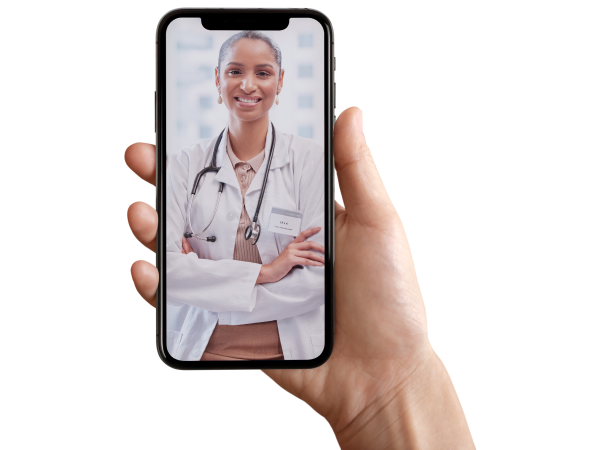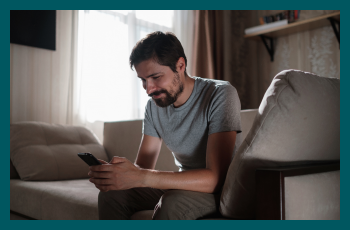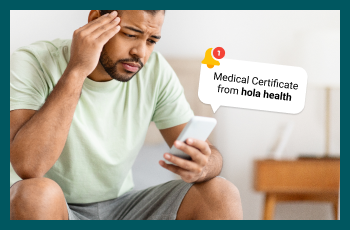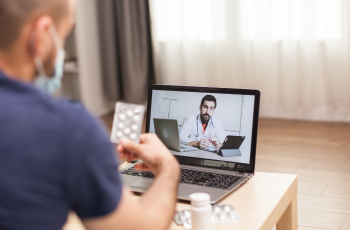Are online medical certificates getting popular in Australia?
Online medical certificates boast convenience and accessibility. These are easily accessible from the comfort of one’s home and are accessible 24/7 from anywhere in Australia. As per digital.gov.au, the widespread adoption of telehealth services, including online medical certificates, is evident with over 118 million telehealth transactions. Telehealth also reduces the burden of the healthcare system, and gives work flexibility to doctors and nurses, making more and more general practitioners in Australia sign up for it. When getting a doctor’s appointment for minor illnesses such as cough, headaches, gastro and such problems becomes increasingly difficult, online medical certificates are popular.Who has the authority to issue a valid medical certificate?
A valid medical certificate online can be issued by a registered medical practitioner licensed to practice in Australia. All medical certificates should have the doctor’s details and their signature to make it valid.
Consult an Online Doctor in 15 mins




What is a fake medical certificate?
A fake medical certificate is a document that falsely claims a person is sick when they are not. People might use these to get out of work or school when they are not sick. According to the Australian Chamber of Commerce and Industry, this happens especially on Mondays or Fridays when people want a longer weekend. In Australia, full-time workers get 10 paid sick days each year under the Fair Work Act 2009. Part-time workers get a portion of that depending on how much they work. According to an article, Australians were taking 90 million sick days per year which is costing billions to the economy. According to the Australian Bureau of Statistics, the amount of work hours has decreased in 2022 with more people on sick leave. If there is a genuine reason for this, then the employee can get a legitimate doctor’s certificate online or offline. However, if an employee habitually “chucks a sickie,” then employers should become aware of the indicators of a sick certificate.How to spot a fake medical certificate?
Several key indicators can help you determine its authenticity. Here are some steps to help:- Look for Mistakes: Check for spelling mistakes or wrong dates. Pay attention to the formatting and layout of the medical certificate. Authentic certificates are usually printed on official letterheads and may include official stamps, seals, or logos. Be cautious of certificates that appear poorly formatted or lack professional quality.
- Check the Doctor’s Details: Authentic medical certificates have the doctor’s name and signature. If these details are missing or look unusual, it might be fake.
- Ask Questions: If you are not sure if a medical certificate is real, ask questions. Ask the person who gave it to you about the doctor or where they got it from. If the certificate is obtained under suspicious circumstances or from an unfamiliar healthcare provider, exercise caution and consider verifying its authenticity before accepting it as valid documentation.
- Contact the telehealth platform: Employers and educational institutions have the right to verify the authenticity of medical certificates by contacting the issuing healthcare platform directly.
- Trust Your Instincts: If something feels off about the medical certificate, trust your instincts. It is better to be safe than sorry.
What circumstances need to be met to get an online medical certificate?
An online medical certificate is a valid document that justifies the absence of a person from his/her daily activity such as work, school/university or a carer’s leave. To get a doctor’s note, a person should request a certificate from a reputed platform. A registered doctor will review the information and medical details provided and conclude whether a medical certificate can be issued. In some cases, a doctor may require a video consultation and discuss the patient's condition during that call. The doctor will then issue a medical certificate online for the date of the consultation. One must note backdating medical certificates is considered unethical and illegal in Australia. Multi-day certificates can be obtained if the doctor decides your illness might require more time to recover.What precautions should be taken while obtaining a doctor’s certificate in Australia?
As the world moves towards convenience, healthcare is becoming increasingly digital. One should be cautious not to fall in for fake medical certificates from fraud platforms. People can fall prey to many online scams and lose money as well as become legally fraudulent by submitting such medical certificates online to an employer. The following precautions should be taken to ensure you get a valid medical certificate:- Identify a reputed platform: Look for a platform whose company is physically headquartered in Australia. They should have a physical address, support information and any other licenses to run a business in Australia.
- Doctor qualifications: Understand if the doctors are licensed and are working within Australia.
- Read reviews: With the power of digital media, read reviews and testimonials about the platform to understand how genuine their service is.
- Patient confidentiality: Ensure the website understands patient confidentiality and has strict data protection protocols in place.
What information is included in a doctor's certificate?
A doctor’s certificate is a document that tells others you are sick and cannot go to work or school. It is important to be aware of what’s included in a sick certificate online or offline to decipher whether it is fake or valid. Here is what you can expect to find in a typical doctor’s certificate:- Patient Information: This includes the patient’s name, date of birth, and sometimes their address and contact details. It ensures that the certificate is specific to the individual and cannot be used by someone else.
- Date of Consultation: The date when the patient visited the doctor to obtain the certificate. One must note that back-dated certificates should not be given in Australia except for some circumstances. The certificate should be given for the day of consultation or the days following in a multi-day medical certificate.
- Duration of Incapacity: The period for which the patient is deemed unfit to work or attend school due to their medical condition.
- Doctor’s Details: This includes the name, contact information, and signature of the healthcare provider issuing the certificate. The doctor should be registered and licensed. The online doctor’s certificate will also contain the doctor’s prescriber number to verify its authenticity.
- Logo and other details: In the case of a telehealth medical certificate, one should also look for the logo of the provider, their contact information, license number etc. Some telehealth providers also mention which states they can provide the medical certificate for such as online medical certificate QLD, NSW, VIC, ACT, and SA.
- Additional Notes: Any additional information or comments deemed relevant by the healthcare provider may be included in the certificate.
What are the risks?
Obtaining a fake medical certificate in Australia can lead to serious problems. Here are some simple explanations of the risks:- Losing Trust: If someone finds out your medical certificate is fake, you could get in trouble at work or school. Your boss or teacher might not trust you anymore, and you could even lose your job or face other consequences. Your coworkers or classmates might feel like you are not being honest, which can hurt your relationships with them.
- Legal Trouble: Using these is dishonest, and it is against the law. You could face legal consequences if you get caught, including fines, legal action, or criminal charges for forgery or fraud.
- Hurting Others: When you use a fake medical certificate, it can put extra pressure on your coworkers or classmates. They might have to do more work to cover for you, which is not fair to them.
- Running Out of Real Sick Leave: If you use up your sick leave with a fake certificate when you are not sick, you might not have any left when you need it. This means you will not get paid if you are genuinely ill and must take time off work.
What does an actual online medical certificate look like?
An actual online medical certificate typically resembles a formal document that includes the following elements:
- Header: The name and logo of the healthcare provider or telehealth service issuing the certificate.
- Patient Information: Patient’s full name, date of birth, and contact details.
- Date of Consultation: The date when the patient consulted the healthcare provider for their medical condition and obtained the certificate.
- Duration of Incapacity: The period for which the patient is deemed unfit for work or other activities.
- Doctor’s Details: The name, credentials and signature of the healthcare provider who issued the certificate.
- Security Features: To prevent fraud or tampering, online medical certificates may include security features such as watermarks, digital signatures, o r unique identifiers.
Let Hola handle your medical certificate concerns
Hola Health offers round-the-clock access to online medical certificates from certified medical practitioners Australia-wide. You can now easily get a medical certificate for work, a medical certificate for school/university, a carer's certificate or a stress leave certificate. Multi-day certificates can be requested via a telehealth appointment with an online doctor. Here is a step-by-step guide to requesting a medical certificate on Hola:- Go to the medical certificate page
- Choose the certificate type
- Enter your details along with the reason for requesting the certificate
- Make the payment
- A licensed medical practitioner will review your request
- If approved, receive a medical certificate emailed to your registered email address within 15 minutes







 Facebook
Facebook Instagram
Instagram LinkedIn
LinkedIn



